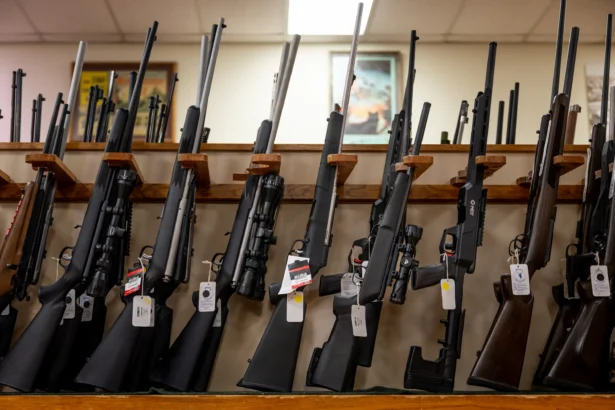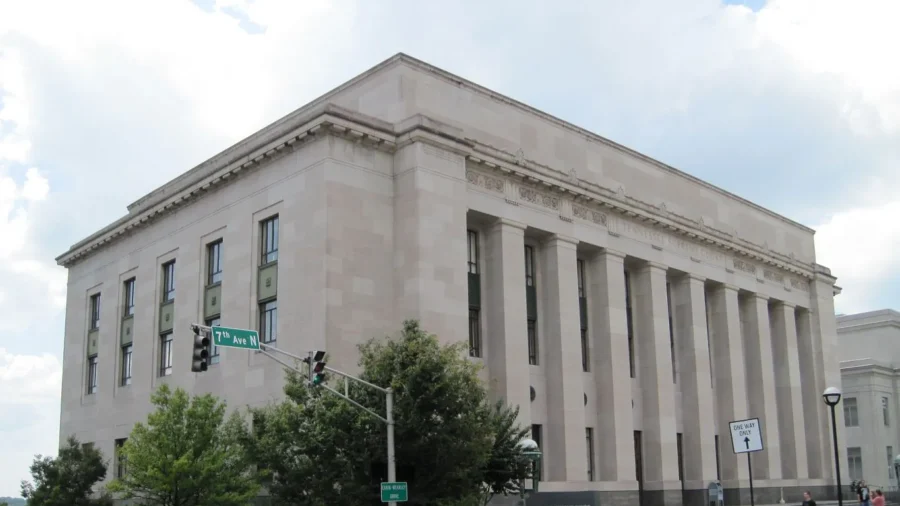The state’s toughened voting rights restoration policy requires convicted felons to get their gun rights restored before they can become eligible to vote, Tennessee’s elections office said Tuesday, confirming a mandate that officials had been debating internally.
In June, a state Supreme Court ruling prompted election officials to decide that all convicted felons must first get their full citizenship rights restored by a judge—or show they have been pardoned—before they can regain their voting rights.
Voting rights advocates have argued that the way the court ruling was interpreted and turned into standard procedure is excessive.
The policy change has all but put a freeze on voting rights restorations for felons, with more than 60 applications denied and just one approved since the new rules came into effect. This is an approval rate lower than 2 percent. In the preceding seven months, when some 200 people out of 320 felons had their voting rights reinstated, the approval rate stood at 62 percent.
In June, the Tennessee Supreme Court ruled against a man who sought to register to vote in the state after receiving clemency for a felony he committed in Virginia decades ago, saying he still had to go through the process of restoring his citizen rights.
Tennessee elections officials said the court’s wording met the requirements under state law to necessitate a standard policy change.
On Tuesday, State Elections Coordinator Mark Goins confirmed the gun rights requirement. Pointing to the court’s ruling, he reiterated that full citizenship rights must be restored before felons can regain the right to vote, adding that “the right to bear arms is a right of citizenship” under the Tennessee Constitution.

The state of Tennessee strips away gun rights from all those convicted of felony drug crimes and violent felonies.
Only high-level legal action, such as a governor’s pardon, can restore voting rights, said the Campaign Legal Center (CLC), a nonprofit, nonpartisan legal advocacy group whose main focus is to advocate for the strict enforcement of United States campaign finance law.
The CLC had already filed a federal class-action lawsuit against the state over its previous voting rights restoration process—before the new rules even took place—on the basis of an identity politics argument, namely that the process amounted to the suppression of African-American voters.
Specifically, the suit argues that the state fails to make clear which officials can sign the necessary forms, provides no clear criteria for when an application would be denied, and offers no avenue for appeal.
Other objections to the procedure are that applicants are required to be up to date on restitution, court costs, and child support payments, and that voting rights restoration is entirely barred for certain categories of crimes, if they were committed within certain date ranges.
The lawsuit was scheduled to go to trial last November but was delayed when the policy change sparked by the high court’s decision went into effect.
“Despite the Tennessee legislature’s clear intent to create meaningful pathways for voting rights restoration, the Elections Division, with help from the Attorney General’s office, continues to twist the law into tortured knots to prevent the 475,000 Tennesseans, including over 20 percent of voting age black Tennesseans, with past felony convictions from voting,” Blair Bowie of the CLC said.
As of now, it remains unclear whether supermajority Republicans will push to revert to the old system. Senate Speaker Randy McNally, for one, would prefer to see even more restrictions.
“Overall, I’m not in favor of felons voting. I think they’ve committed a serious crime, serious offense against the state,” he said earlier this month. “And until they’re out of jail and either been pardoned or exonerated for what they did, then they forfeit that right.”
The Associated Press contributed to this article.


